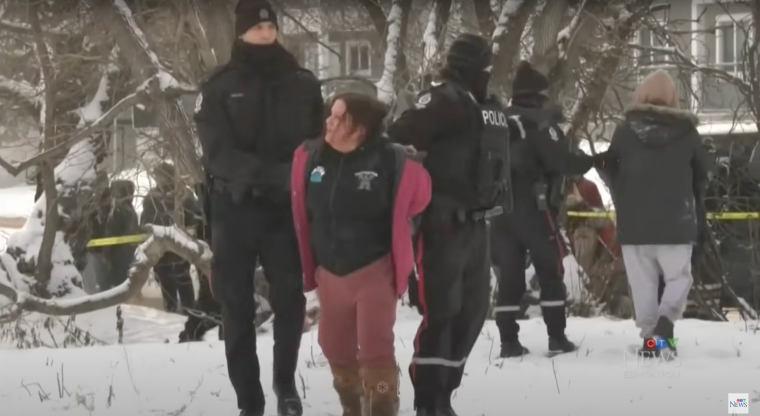On January 10, 2024, police in Edmonton, Canada, arrested and charged Indigenous journalist Brandi Morin with obstruction in connection with her reporting on a homeless encampment raided by police, according to social media posts from Morin and Ricochet, the publication for which she was on assignment.
Morin was in the encampment conducting interviews for a story about the Indigenous-led camp, which was targeted for demolition by the city of Edmonton, where 58% of the unhoused population is Indigenous, according to Ricochet.
While Morin was speaking with individuals in the encampment, police cordoned off the perimeter, Ricochet reported. In an article Morin wrote for Ricochet about her arrest, she recounted that police asked her to leave, and she told them that she had a right to be there as a journalist.
Morin was then handcuffed and placed in a police vehicle before being taken to police headquarters. Morin wrote that she was then searched by a female officer and held in a cell for five hours. While in detention, she was allowed to call for her daughter to be picked up and to contact her editor to arrange for a lawyer.
Morin wrote that she was charged with obstruction upon her release and was given a court summons for February 1. On that day, Morin was photographed and fingerprinted, the Guardian reported. Morin wrote on X, formerly Twitter, that her next court date is March 1.
If convicted, Morin could face up to two years in prison under Canada’s criminal code.
Morin was arrested in a media exclusion zone, where police can limit public access and where journalists have had trouble reporting in recent years. Canadian courts in two provinces have ruled that journalists are allowed to report in exclusion zones with very narrow exceptions.
An award-winning journalist and author, Morin has reported on missing Indigenous women and girls in Canada and the environmental impact of oil sands extraction on Indigenous communities.
The Edmonton Police media relations department said that they would not be commenting at this time since the matter is currently before the courts.
